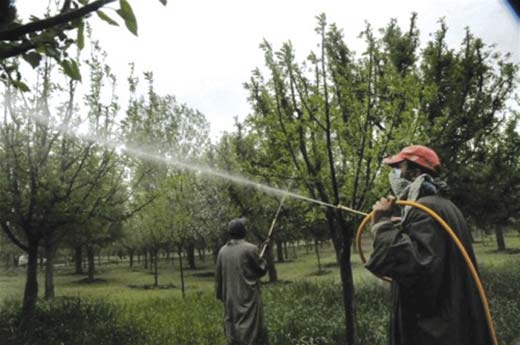KL NEWS NETWORK
SRINAGAR

Delhi India has decided not to abrogate the 56-year-old Indus Water Treaty (IWT), but to take steps to maximise usage of western rivers as per the pact and review the suspension of the construction of Tulbul navigation project.
However, the only decision with immediate impact will be the deferral of the next meeting of the permanent Indus commission.
“A key message which the prime minister gave at the meeting was that blood and water cannot flow at the same time,” sources told The Wire on Monday evening.
The meeting was attended by national security advisor Ajit Doval, foreign secretary S Jaishankar and water resources secretary Shashi Shekhar.
The water distribution treaty was signed by India and Pakistan in 1960 and by the World Bank after eight years of negotiation.
“I am sure you are aware that there are differences between India and Pakistan on the implementation of the Indus Waters Treaty… For any such treaty to work, it is important there must be mutual trust and cooperation. It cannot be a one-sided affair,” MEA spokesperson had Vikas Swarup said.
However, the Narendra Modi government today clearly did not take the plunge to cancel the treaty.
Instead, the only immediate impact would be that the next meeting of the permanent Indus commission will not be held in a hurry.
“The view was that the meeting can only take place in atmosphere free of terror,” said sources.
The permanent Indus commission which is made up of officials from India and Pakistan meets twice a year to implement the treaty by exchanging data and resolving disputes. So far, 112 meetings of the permanent Indus commission have been held.
As per the treaty, the meeting of this bilateral body can be kept in abeyance till up to one year.
The Tulbul navigation project, whose construction had been suspended by India as a “measure of goodwill” in 1987, may also be revived, reports added.
The meeting also agreed to set up an “inter-ministerial task force for expeditious implementation of rights by India pertaining to the western rivers”.
As per the Indus Waters Treaty, India is allotted all the waters of the eastern rivers of Sutlej, Beas and Ravi, except for a small proportion to Pakistan. Similarly, India is allowed up to 20% of usage of water for from the western rivers of Chenab, Jhelum and the Indus for agricultural, storage and hydropower.
In fact, sources specifically pointed to the Jammu and Kashmir assembly resolution which had called for the cancellation of the treaty in 2003. This was brought up to point out that Kashmiri “sentiments” were not in favour of the Indus Waters Treaty.
Under Annexe ‘C’ of the treaty, India is allowed to use waters from the western rivers for irrigating up to 9.21 lakh hectares. Another 4.21 lakh hectares can be added for irrigation if India gives more water to Pakistan.
India has used this provision only for irrigating 8 lakh hectares. “This taskforce will look at fully utilising our agricultural usage,” sources added.
Further, India is allowed to build storage capacity of up to 3.8 million acre feet (MAF). “Currently, we have created no storage capacity. So, we will be looking into that,” he added.
The third and last aspect that New Delhi wants to highlight is to fast-track hydropower projects.
According to Indian estimates, the potential for hydropower from India’s share of the western rivers is 18,600 megawatt. However, the installed capacity is 3,034 megawatt, with another 2.526 megawatt of capacity under construction.
Sources added that projects with capacity to generate 5,846 megawatt of electricity was also at an “advanced stage of planning”. India is allowed to construct ‘run of the river’ hydropower projects as per the treaty, but even all such constructions require some ‘pondage’.
India will also expedite the construction of three dams on the Chenab – Pakal-Dol, Sawalkot and Bursar. But, as former chief minister of Jammu and Kashmir Omar Abdullah indicated, these are all long-term steps.
(This is an edited version of news story which first appeared in TheWire.in)















